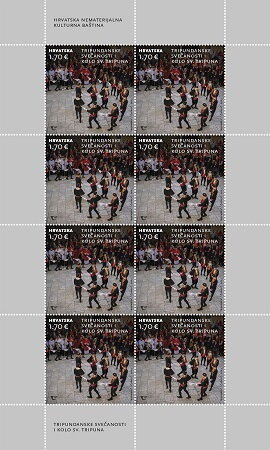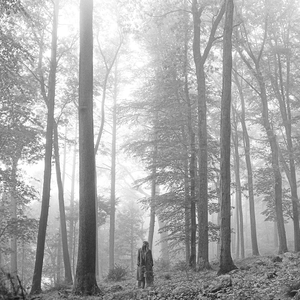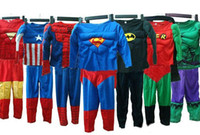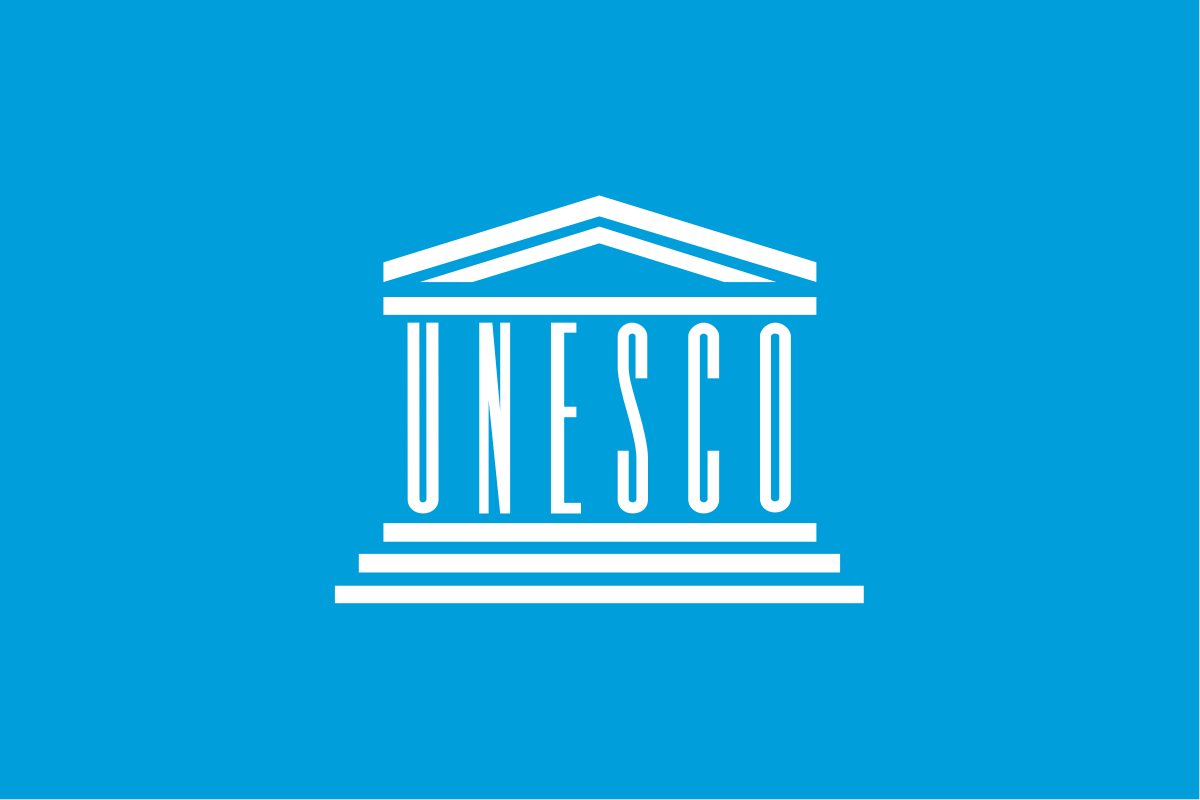Full Pane: Festival of St. Tripun (Croatia 2025)
Festival of St. Tripun (Croatia 2025)
05 June (Croatia ) within release UNESCO Intangible Cultural Heritage From Croatia (2025) goes into circulation Full Pane Festival of St. Tripun face value 8*1.70 Euro
| Full Pane Festival of St. Tripun in catalogues | |
|---|---|
| Colnect codes: | Col: HR 2025.06.05-03a |
Full Pane is square format.
Also in the issue UNESCO Intangible Cultural Heritage From Croatia (2025):
- Stamp - Falconry in Croatia face value 1.70;
- Full Pane - Falconry in Croatia face value 8*1.70;
- Stamp - Festival of St. Tripun face value 1.70;
- Full Pane - Festival of St. Tripun face value 8*1.70;
Full Pane Festival of St. Tripun it reflects the thematic directions:
A festival is an event celebrated by a community and centering on some characteristic aspect or aspects of that community and its religion or cultures. It is often marked as a local or national holiday, mela, or eid. A festival constitutes typical cases of glocalization, as well as the high culture-low culture interrelationship. Next to religion and folklore, a significant origin is agricultural. Food is such a vital resource that many festivals are associated with harvest time. Religious commemoration and thanksgiving for good harvests are blended in events that take place in autumn, such as Halloween in the northern hemisphere and Easter in the southern.
Folklore is the body of expressive culture shared by a particular group of people; it encompasses the traditions common to that culture, subculture or group. These include oral traditions such as tales, proverbs and jokes. They include material culture, ranging from traditional building styles to handmade toys common to the group. Folklore also includes customary lore, the forms and rituals of celebrations such as Christmas and weddings, folk dances and initiation rites. Each one of these, either singly or in combination, is considered a folklore artifact. Just as essential as the form, folklore also encompasses the transmission of these artifacts from one region to another or from one generation to the next. For folklore is not taught in a formal school curriculum or studied in the fine arts. Instead these traditions are passed along informally from one individual to another either through verbal instruction or demonstration. The academic study of folklore is called folkloristics.
In clothing, a suit is a set of garments made from the same cloth, usually consisting of at least a jacket and trousers. Lounge suits (also known as business suits when sober in colour and style), which originated in Britain as country wear, are the most common style of Western suit. Other types of suit still worn today are the dinner suit, part of black tie, which arose as a lounging alternative to dress coats in much the same way as the day lounge suit came to replace frock coats and morning coats; and, rarely worn today, the morning suit. This article discusses the lounge suit (including business suits), elements of informal dress code.
The United Nations Educational, Scientific and Cultural Organization (UNESCO; pronounced /juːˈnɛskoʊ/) is a specialized agency of the United Nations (UN) with the aim of promoting world peace and security through international cooperation in education, arts, sciences and culture. It has 194 member states and 12 associate members,as well as partners in the non-governmental, intergovernmental and private sector. Headquartered in Paris, France, UNESCO has 53 regional field offices and 199 national commissions




